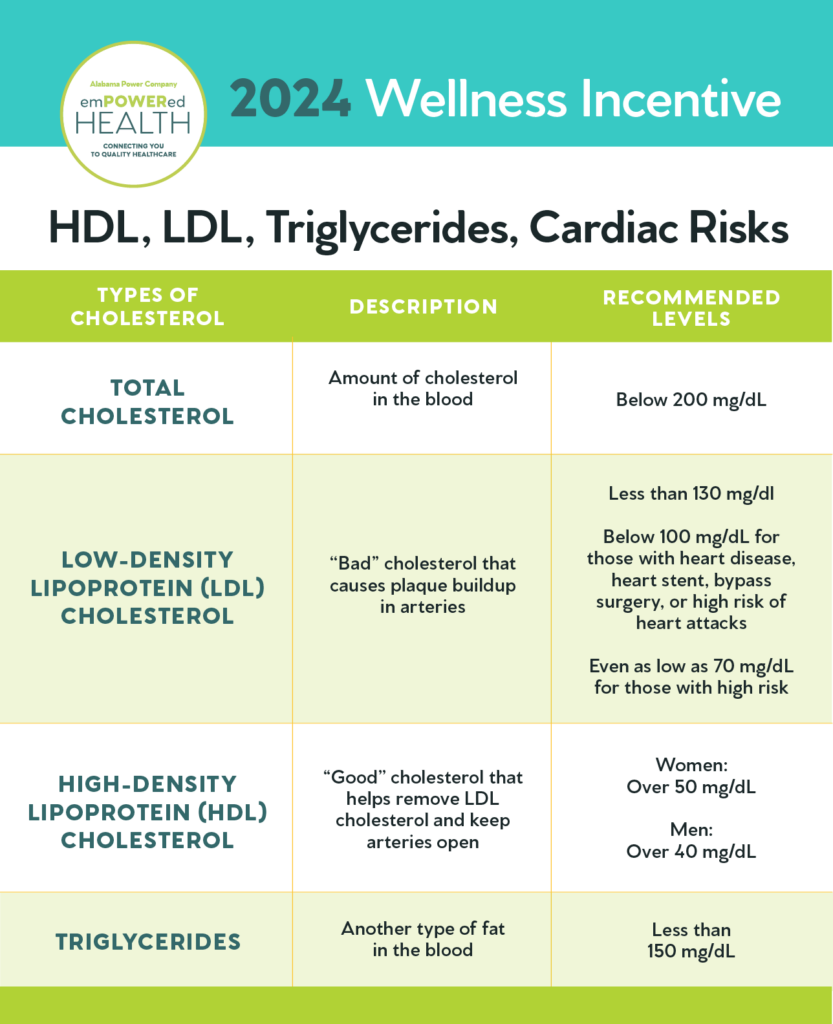During your annual physical, your healthcare provider will want to check your heart. They will ask you questions about your family history of heart disease and will want to know if you are having any symptoms like shortness of breath with activity, pain in your chest, rapid heartbeat, and/or swelling in your feet and ankles. The lab tests your provider orders are a lipid panel, or lipid profile, to check the fats in your blood. These levels help determine your risk for coronary artery disease (CAD). The results help the physician determine your risk of having a heart attack or the presence of coronary artery disease.
The most common cause of coronary artery disease is atherosclerosis or a buildup of fatty plaques in the arteries in the heart. The risk factors for CAD include a poor diet, a sedentary lifestyle, lack of exercise, being excessively overweight and smoking. The fats in your blood your physician is most interested in, include the following: Total Cholesterol, LDL, HDL, and Triglycerides. Learn more about these important lab markers below.

Healthy lifestyle choices can lower the risk of coronary artery disease. By eating a healthy diet, exercising most days of the week, losing excess weight, and stopping smoking, one can lower their risk of cardiac disease and having heart disease. Talk to your healthcare provider about steps you can take to get started on a path to healthier heart health. For more information on how to live a heart-healthy lifestyle click here.




